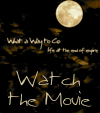” At some point, since oil is a finite resource, you can’t keep raising production. Usually this is about the halfway point. When you’ve depleted half of the resource it becomes harder and harder to raise production. Doesn’t mean you run out. And a great deal of oil is still coming out of the ground. If we were to peak tomorrow we’d still have eighty-two and a half million barrels coming out of the ground every day. But it would be really hard to get eighty-three and a half million barrels.”
Paul Roberts is an American journalist and author of two non-fiction books, The End of Oil (2004) and The End of Food (2008). He had before been a regular contributor to Harper’s Magazine and writes primarily about “the complex interplay of economics, technology, and the natural world.”
In his book-length debut, The End of Oil, Roberts gave an analysis of the various problems associated with humanity’s reliance on oil and other fossil fuels such as coal and natural gas. The book received a number of positive reviews from American newspapers and review publications. Notably, environmentalist Bill McKibben, in an article for the New York Review of Books, described it as “perhaps the best single book ever produced about our energy economy and its environmental implications.”
In 2008, Roberts published his second book, titled The End of Food. It is similar in fashion to The End of Oil in that Roberts attempts a comprehensive analysis of food production with its intricacies and weaknesses. As a theme, Roberts asks whether modern agriculture, as it has emerged since the Green Revolution, will be able to feed a growing world population. The End of Food was described by Michael Pollan, a professor of science and environmental journalism at the University of California and himself an author of food-related non-fiction, as “the best analysis of the global food economy you are likely to find.” (From the Wikipedia entry.)





